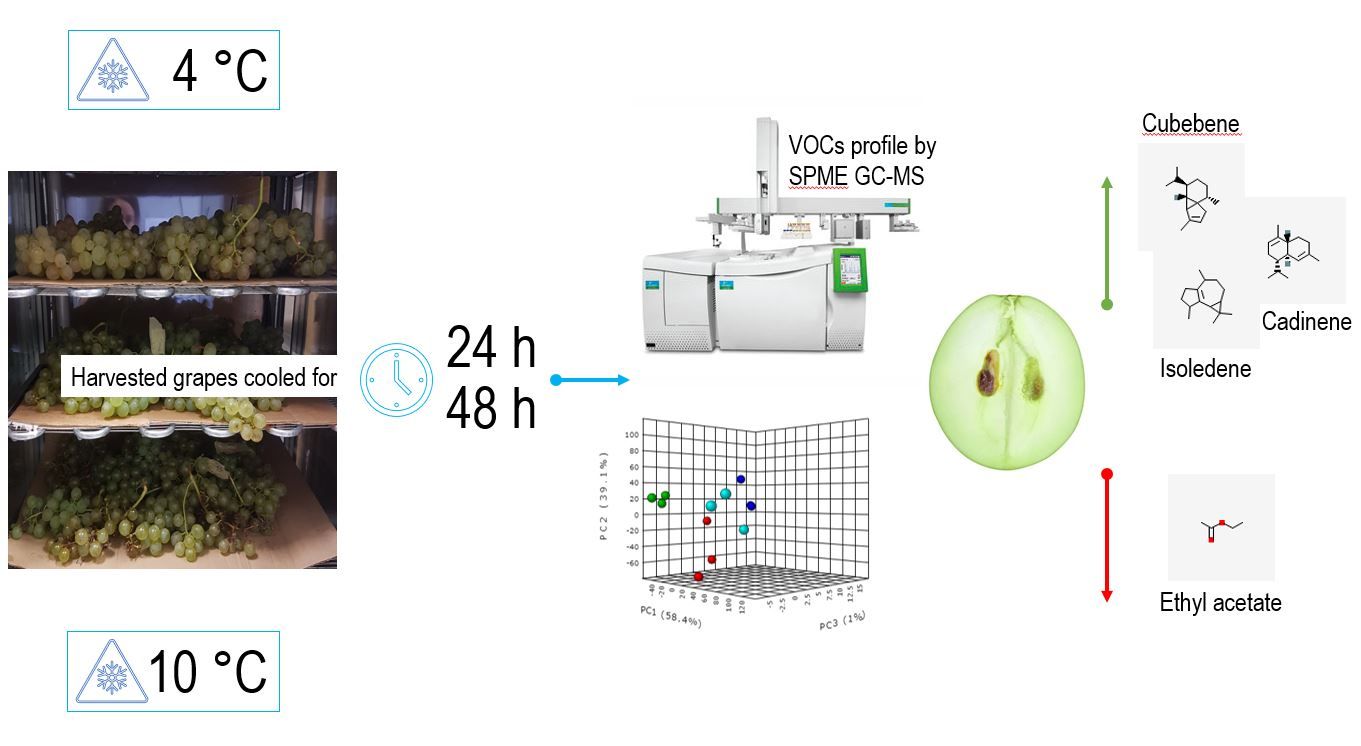Short-term low temperature treatments of harvested wine grapes (cv. Vermentino) affect the volatile organic compound profile of the berries

Published 2020-05-04
Keywords
- aroma,
- post-harvest,
- temperature conditioning,
- terpenoids,
- Vitis vinifera
How to Cite
Abstract
In the recent years, due to the climate change and the effects of greenhouse gases average temperatures are increasing. Grapes cultivated in Mediterranean areas are exposed to high temperatures especially during the late growing season and at harvest. This may induce undesirable biochemical processes (e.g. aroma losses and oxidative reactions) with negative effects on the berry composition and specific quality traits of the resulting wine. In the present study the effect of short-term low temperature treatments on harvested grapes before vinification have been evaluated. Bunches of wine grapes cv.Vermentino have been hand-harvested and then refrigerated at 4°C and 10°C for 24 and 48 hours, while 22°C has been used as a control temperature. Grapes were analysed in terms of technological parameters (weight loss, total soluble solids, titratable acidity, pH and total polyphenols) and volatile organic compound profile by HS-SPME GC-MS. Low-temperature post-harvest treatments affect total polyphenols content of the berries and appear to reduce the heat-related aroma loss, increase the content of four volatile terpenoids and decrease the accumulation of ethyl acetate.





